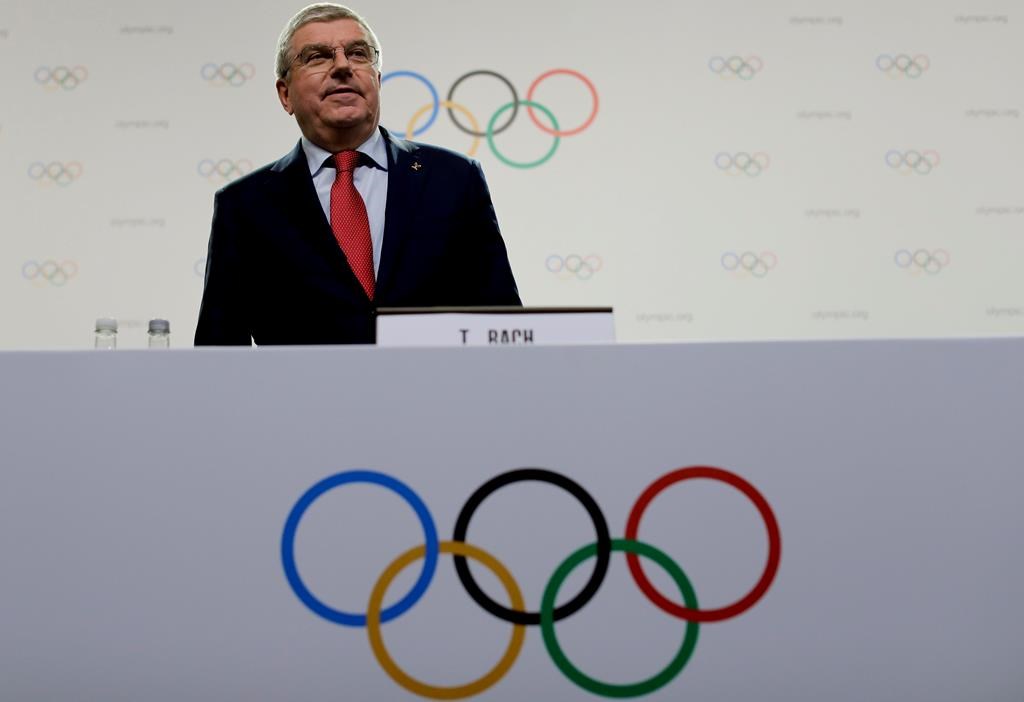There are many for whom the resounding “no” vote in Tuesday’s Olympic plebiscite in Calgary would be considered a loss, but there was probably no bigger loser that night than the International Olympic Committee (IOC) itself.

Calgary is not the first city to spurn the Olympics at the ballot box, and it most likely won’t be the last. However, the IOC should be especially alarmed by the fact that the 2026 cycle alone has now seen two previous host cities of the Winter Olympics (Innsbruck, Austria, and Calgary) reject the Games in plebiscites.
Since Vancouver voters said yes in a 2003 Olympic plebiscite, there have been 11 such votes, and nine of them have resulted in a no. Oslo voters said yes to hosting the 2022 Games, but the city abandoned its bid after growing concern about rising costs and revelations about the extravagant demands of the IOC.
Those nine “no” votes include two separate 2026 plebiscites in Switzerland, not to mention a bid in Graz, Austria just ahead of a vote there. Additionally, bids in Sapporo, Japan and Erzurum, Turkey were both abandoned. Worse yet, there is still the possibility of even more calamity to follow as the two remaining bids — Stockholm, Sweden and a Milan/Cortina d’Ampezzo, Italy bid — are both on shaky ground.
Stockholm’s newly elected municipal government is refusing to spend any public dollars on the Games, and the federal government in Italy has vowed the same. The prospect of having no official bids for the 2026 Winter Olympics is now very real. Only three cities bid for the 2018 Games, and the 2022 selection came down to just Beijing, China and Almaty, Kazakhstan. The Summer Games for 2024 and 2028 were awarded simultaneously to Los Angeles and Paris, lest the 2028 Games be left without any candidates.
It is the sort of existential crisis the IOC has worked strenuously to avoid, but one that it both deserves and desperately needs. Calgary voters should feel a sense of satisfaction in having helped to bring it about.
WATCH: Calgary votes ‘no’ — A look at voter turnout and end result of Olympic plebiscite

The IOC has evolved into a monstrosity, and as such, it cast a long shadow over the Calgary 2026 debate. Olympic proponents went out of their way to appeal to the nostalgia of the 1988 Olympics, but the problem in that strategy was that it served as a constant reminder of a world that no longer exists. Even in a city like Calgary, where fond memories exist of a previous Olympics, the IOC’s reputation proved to be an insurmountable obstacle.
Calgary’s bid boosters tried to argue that as a host city, Calgary could pull the IOC in the right direction, but so deep was the mistrust that Calgary voters weren’t willing to take the risk. The “Calgary will show some tough love to the IOC” argument was probably also undermined by the argument that bringing the IOC’s circus to town was Calgary’s last, best economic hope. We don’t need or want a bailout from a bloated, corrupt organization, thank you very much. Nor is there much evidence anyway of a significant, positive impact from hosting the Games.
- ‘Shock and disbelief’ after Manitoba school trustee’s Indigenous comments
- Canadian man dies during Texas Ironman event. His widow wants answers as to why
- Several baby products have been recalled by Health Canada. Here’s the list
- ‘Sciatica was gone’: hospital performs robot-assisted spinal surgery in Canadian first
The IOC has talked a good game about reform, but it’s hard to see evidence of that. The last several Olympics — London, Sochi, Rio and Pyeongchang — have all seen, to varying degrees, enormous costs and considerable cost overruns. The upcoming Summer Olympics in Tokyo may come in at a cost of $25 billion — a nearly four-fold increase.
Moreover, the manner in which Russia was so quickly reinstated after a massive doping scandal, on top of ongoing investigations into IOC corruption, suggest that it’s business-as-usual in so many unfortunate ways.
As one frustrated IOC member recently said in an interview in Australia: “The IOC is seen as being a little too aloof, elitist and arrogant in making assumptions that whatever they’re doing is so good for the world that everybody should just accept that it’s going to bring great legacy and benefits.”
Unfortunately for the IOC, we are no longer in a world where cities are lining up to kiss the feet of the organization. Calgary’s vote is a dramatic reminder of that. The sooner the IOC comes to grips with this cold, hard reality, the better off everyone will be.
Rob Breakenridge is host of “Afternoons with Rob Breakenridge” on Global News Radio 770 Calgary and a commentator for Global News.








Comments